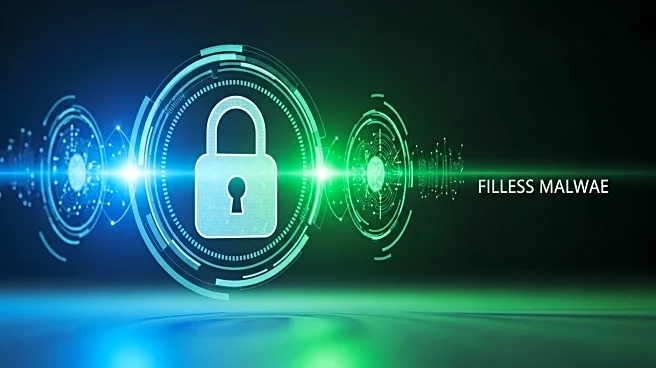What's Happening?
Cybersecurity researchers have uncovered a sophisticated fileless malware campaign that exploits legitimate system tools to deploy AsyncRAT, a powerful remote access Trojan. The attack bypasses traditional detection methods by executing malicious code entirely in memory. The breach began with a compromised ScreenConnect client, leading to the execution of a VBScript that triggered a PowerShell command to download payloads directly into memory. The malware uses a multi-stage fileless loader, making it difficult to detect and remove.
Why It's Important?
This development highlights the evolving tactics of cybercriminals, emphasizing the need for advanced cybersecurity measures. Fileless malware poses a significant threat to organizations as it can evade traditional security systems, potentially leading to data breaches and loss of sensitive information. The use of legitimate tools for malicious purposes underscores the importance of monitoring and securing remote access platforms. Organizations must adapt to these sophisticated threats to protect their digital assets and maintain operational integrity.
What's Next?
Cybersecurity firms and IT departments may need to develop new detection signatures and strengthen endpoint security measures. The findings could lead to increased investment in cybersecurity research and development to counteract fileless malware threats. Organizations might reassess their security protocols, focusing on memory-based threat detection and response strategies. Collaboration between cybersecurity experts and software providers could enhance the security of remote access tools.









